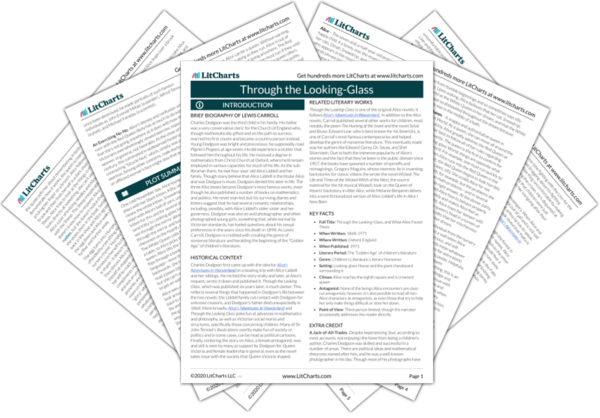Previous
Chapter 5: Wool and Water
|
Previous
Chapter 5: Wool and Water
|
Through the Looking-Glass: Chapter 6: Humpty Dumpty Summary & Analysis |
Next
Chapter 7: The Lion and the Unicorn
|


Upgrade to unlock the analysis and theme tracking for all of Through the Looking-GlassThrough the Looking-Glass!
Get LitCharts A+